
In the family name: Kind Hearts And Coronets
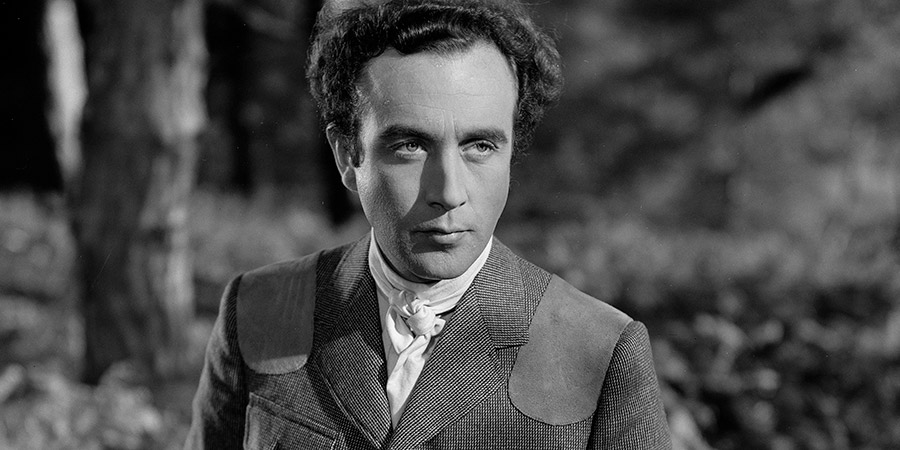
"As in an old Italian proverb: Revenge is a dish which people of taste prefer to eat cold."
- Louis Mazzini
A masterful black comedy set in the Edwardian era? An Ealing classic in which Alec Guinness plays eight different members of the same family? It can only be Kind Hearts And Coronets. The comedy masterpiece was released a full seventy-five years ago.
For whatever reason, the year 1949 was something of a golden moment in British film history. Not only was national cinema attendance still close to its all-time peak (1.43 billion, only slightly down from an all-time high of 1.64 billion admissions in 1946), but the industry was experiencing a quality surge with such landmarks as Oliver Twist (1948), Scott Of The Antarctic (1948), The Red Shoes (1948) and The Fallen Idol (1948) all out recently. The Third Man and two more of Ealing's greatest comedy classics, Passport To Pimlico and Whisky Galore! were released during 1949 alone.
But Ealing Studios still had more up its sleeve, as on 13th June 1949, Robert Hamer's Kind Hearts And Coronets first opened to audiences. Three quarters of a century on, the film remains incredibly watchable and is widely regarded the greatest British comedy film ever made.
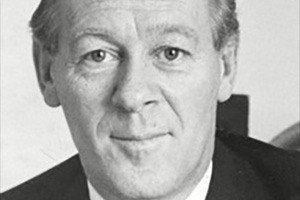
The story of the movie essentially began in 1947 when young playwright Michael Pertwee (pictured) chanced upon a forgotten Edwardian novel while browsing in a second-hand bookshop. Originally published in 1907, the book was called Israel Rank: The Autobiography Of A Criminal and was written by Roy Horniman, an author who had by now been dead for some years. Pertwee was impressed by the story, telling of a half-Jewish, half-Italian man who plots to murder the six people who stand between him and his becoming a duke. Feeling the story had real potential as a comedy film, he passed it onto Ealing head honcho, Michael Balcon. Balcon was initially very doubtful about the idea but nevertheless encouraged Pertwee to press ahead with a screenplay after being impressed by a treatment he produced.
Given the green light, Robert Hamer was assigned director. Unfortunately the two men never got on. "He hated me," Pertwee remembered later. "We only had to be in the same room and he would start to twitch." In the circumstances, Pertwee felt it would be best if he gracefully withdrew from the project.
He ended up the biggest loser in this story: despite finding the source material and writing several drafts of the screenplay, he was ultimately not given a screen credit for the film at all. Officially, it is credited entirely to Hamer and the future co-writer of The Man In The White Suit and Roman Holiday, John Dighton. Author Nancy Mitford is also sometimes credited with working on the script. She was certainly a woman who had some experience of growing up within a large and eccentric aristocratic family. At any rate, Pertwee left Ealing soon afterwards. Despite a prolific stage and film writing career, he is now perhaps chiefly remembered as the brother of comic actor Jon Pertwee, the future star of Worzel Gummidge and Doctor Who.
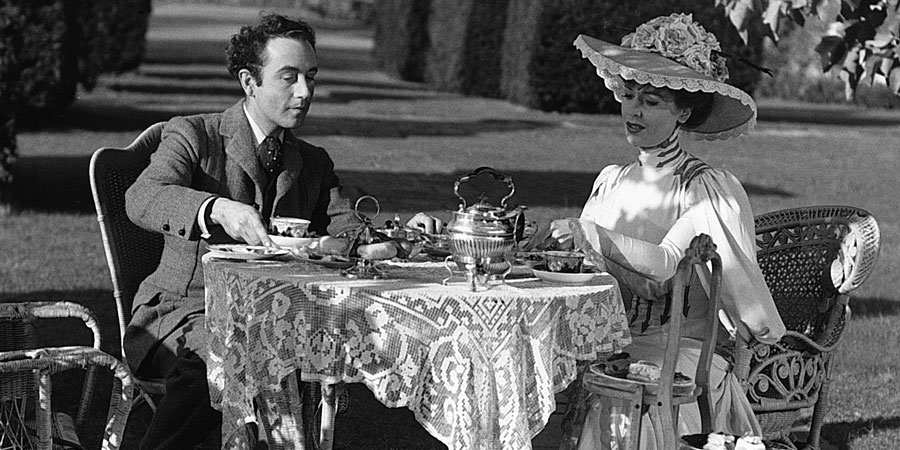
Hamer and Dighton, meanwhile, worked hard to perfect the screenplay. In their hands, Israel Rank became Louis Mazzini, a man driven to murder partly as a means of visiting revenge on a family who cruelly disowned his beloved mother as punishment for her decision to marry an Italian opera singer. The Jewish half of the character's heritage as it appeared in the book was removed, partly due to concerns that it might appear antisemitic. Alec Guinness's portrayal of the Jewish Dickens character Fagin in his previous film, David Lean's Oliver Twist, had proven to be a source of controversy, partly because of the make-up design for the character. Accordingly, the film's title was changed, the relevant quotation taken from the 1842 poem Lady Clara Vere de Vere by Tennyson, which is at one point spoken in the film by Edith (Valerie Hobson):
Kind hearts are more than coronets,
And simple faith than Norman blood.
The film opens in the Edwardian era (still a time well within living memory for many contemporary audience members) where we are introduced to the film's central character, Louis Mazzini D'Ascoyne, the new tenth Duke of Chalfont (Dennis Price) who sits calmly awaiting his execution after being convicted of murder. Following an example of what is literally gallows humour as Miles Malleson's hangman fusses over what title he should use to address the Duke ("your grace" is eventually decided on), we launch into an extended flashback as Louis, speaking in voiceover prepares his memoirs, namely: "A brief history of the events leading thereto written on the eve of his execution by Louis D'Ascoyne Mazzini, who ventures to hope that it may prove not uninteresting to those who remain to read it".
Old as this story undeniably is, we will just give you an overview of the plot, rather than spoiling it entirely.
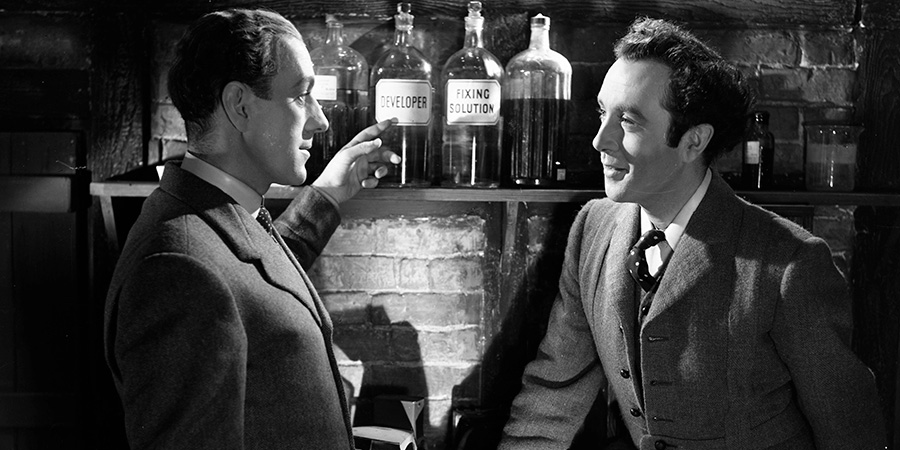
Narration is delivered throughout the film in Dennis Price's velvety tones, and works beautifully as a story-telling device. We learn quickly how Louis's mother (Audrey Fildes) was a daughter of the wealthy D'Ascoyne family who fell in love with an Italian opera singer. As Louis explains: "the dukedom had been bestowed by Charles II on Colonel Henry D'Ascoyne for services rendered to His Majesty during his exile. Later, for services rendered to His Majesty after his restoration by the duchess, the title was granted the unique privilege of descending by the female as well as the male line." There is a joke here about the "merry monarch's" famously lively sex life. But it soon emerges the D'Ascoyne family have disowned Louis's mother for her own actions in the same realm, and refuse to recognise Louis himself.
"I don't wish to be unchristian, but in view of their attitude I could almost wish those twelve people should all die tomorrow," his mother reflects of the other family members who stand between her and the dukedom. She soon dies a pauper's death, run down by a tram at Clapham Junction because she was unable to pay to have her glasses mended. Louis is forced to work as a draper's assistant but loses even that lowly position as a direct result of a complaint from a visiting young D'Ascoyne (Guinness, of course). He is furthermore frustrated in his romantic ambitions, his childhood sweetheart, Sibella (Joan Greenwood) turning down his marriage proposal because he has no money or prospects.
Louis thus embarks on his own murderous campaign against the D'Ascoynes, partly out of pure revenge ("Revenge is a dish which people of taste prefer to eat cold," he says) but also to claim his birth right. "I made an oath that I would revenge the wrongs her family had done her," he recalls of his mother. "It was no more than a piece of youthful bravado, but it was one of those acorns from which great oaks are destined to grow. Even then I went so far as to examine the family tree and prune it to just the living members. But what could I do to hurt them? What could I take from them, except, perhaps, their lives."
The fun really begins as we are gradually introduced to the family members who Louis decides to target. All are, of course, played by one man: Alec Guinness. (It's worth mentioning here that Guinness is not the only person taking on more than one part: Dennis Price also plays Louis's short-lived opera singer father in the film's early scenes. Indeed, we later see Price briefly adopting a new persona again as he pretends to be a colonial bishop as part of a ruse to dupe one of his victims.)

The eight D'Ascoynes brought to life by the future Sir Alec are:
Ethelred, 8th Duke of Chalfont: A dull-witted buffoon who holds the lower orders in contempt and thinks nothing of planting mantraps on his land or having suspected poachers flogged.
The Reverend Lord Henry: A doddering clergyman who Louis takes a dislike to as a result of his tedious eulogies and long-winded speaking style. For example, "And I always say that my west window has all the exuberance of Chaucer without, happily, any of the concomitant crudities of his period." (Thankfully, Guinness himself was never as dull as this when he eventually became an old man in real life.)
General Lord Rufus: The military hero. Dies much as he lives. I.e. while boring everybody to death with endless war stories.
Admiral Lord Horatio: A seadog. Full of courage and a sense of adventure. Low on brains and common sense.
The banker: An old man. Guinness's performance here is only a little different from the Reverend. Louis nevertheless takes a liking to him, appreciating his decision to promote him thus enabling him to advance up the social ladder.
Lady Agatha: The lone female, a suffragette, played by Guinness in drag. Although she shushes Rufus at one point for snoring in church and we see her talking as she begins her balloon ride, we never actually hear her speak.
Young Henry: A keen amateur photographer. Despite a weakness for alcohol, Louis concedes he seems like "a decent fellow" although adds: "I must admit, he exhibits the most extraordinary capacity for middle-age that I've ever encountered in a young man of twenty-four".
Young Ascoyne, the banker's son: A bit of a git.
In short, the family as a whole are such a ghastly bunch that it is often hard not to find yourself rooting for Louis as the film progresses. It is probably this mischievous streak that makes the film so appealing to the viewer in the first place. As Hamer admitted, one of his stated aims was to make a film "which paid no regard whatever to established, although not practised, moral convention". From the perspective of 1949, with the 1945 Labour election landslide a recent memory, audiences would doubtless have pondered the absurdity of a system that automatically granted such a family of apparently inbred mediocrities such wealth and influence in the first place. They might also have questioned the right of the D'Ascoynes, a brood so clearly Norman (i.e. French) in origin, to disown one branch of its family simply because one of their number eloped with an Italian performer. We thus enjoy seeing the different ways Louis manages to knock off the different members of the family and become complicit in his crimes.
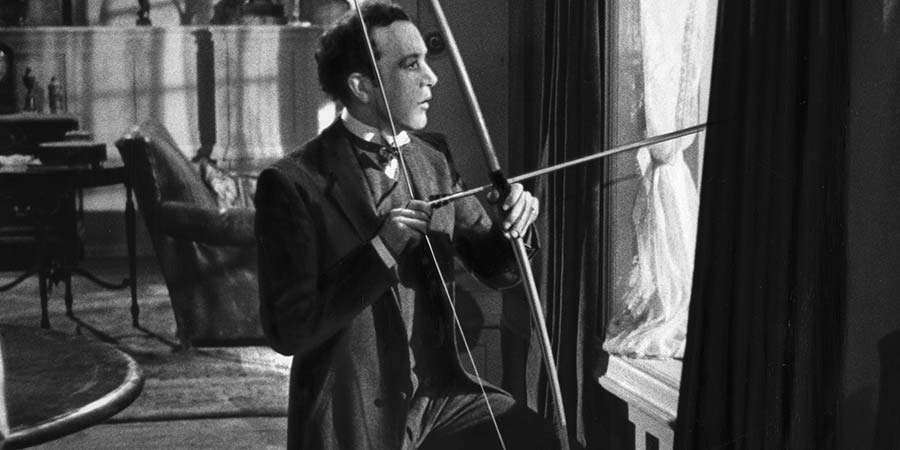
That said, Louis behaves thoroughly despicably throughout the film himself. For example, in one of the its blackest scenes, we see his disappointment as one of his rivals fathers a pair of twins, creating another obstacle to him one day obtaining the dukedom. But in the next moment, we see Louis cheerfully crossing three names off the family tree as the news reaches him that an outbreak of diphtheria has not only carried off the twins but has had the "added bonus" of carrying off the mother too. Rarely has a clear family tragedy been treated so flippantly.
Louis also shows no qualms about killing the lover of one of his victims (Anne Valery), effectively treating her as collateral damage. He also treats the two central women in the film, childhood sweetheart, Sibella (Joan Greenwood) and Edith (Valerie Hobson) appallingly throughout. He also thinks nothing of bedding Sibellla on the night before her wedding, boasting to the groom (John Penrose) "you're a lucky man, Lionel: take it from me!" In Sibella, however, Louis does ultimately find a potential rival and near-equal, almost as adept at skulduggery as he is. Incidentally, Hobson went onto marry Conservative politician John Profumo, who in 1963 triggered one of the biggest political scandals in British history, and the downfall of the then-government.
Back in 1949, Alec Guinness, then in his mid-thirties and already an increasingly famous name, was delighted by the script. Born himself to an extremely poor family background that ensured he never knew who his own father was, he may have had some special sympathy for Louis's plight. He was initially offered three roles but reasoned: 'If you want seven or eight people to look like me, why don't I play them all myself?' It was agreed.
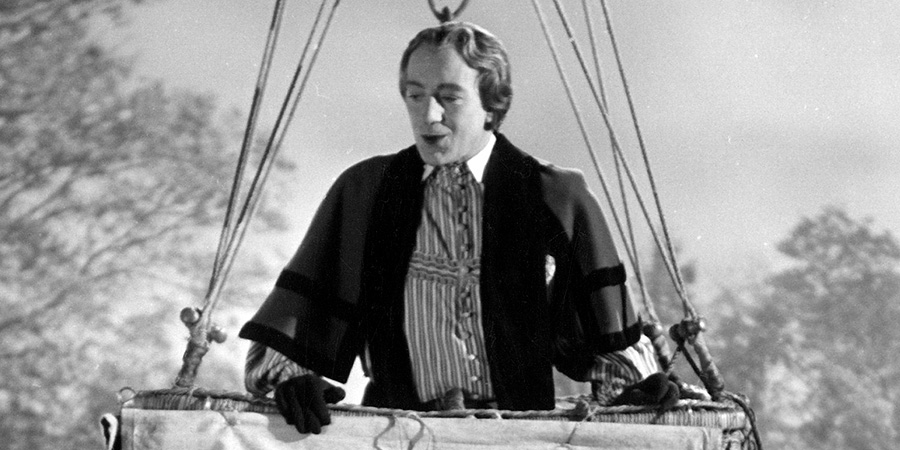
Inevitably, such multitasking proved a challenge. "Quick transformation from one character to another has a disturbing effect." Guinness would recall. "I had to ask myself from time to time: Which one am I now? I had fearful visions of looking like one of the characters and thinking and speaking like one of the others. It would have been quite disastrous to have faced the cameras in the make-up of the suffragette and spoken like the admiral." He regularly visited the cutting rooms where he would listen to sound loops to remind him of the characters he was playing.
One particular scene featuring six of Guinness's D'Ascoynes in contiguous church pews at the same time proved especially arduous to shoot, and has gone down it cinematic lore for its technical skill and ingeniousness. As Alec Guinness's biographer, Garry O'Connor explains in his book, Alec Guinness: A Life:
The lens was laboriously shuttered and finely adjusted to open in part for each new impersonation. It took three days at Ealing to shoot the requisite number of fifteen-second shots, while at any moment the composite picture could have been ruined if Alec had not complied with the technical complexities of the placings.
Guinness and director Hamer had a strong working relationship. "We talked the same language. We laughed at the same things," Guinness commented. The film was shot in Ealing's eponymous west-London studios and on location at Leeds Castle in Kent. It features early appearances from the actor Hugh Griffith and future Dad's Army star, Arthur Lowe. In the USA, the ending was slightly altered to emphasise the view that crime does not pay.
Ultimately, Kind Hearts And Coronets proved a big success. Lindsay Anderson, then a young, aspiring filmmaker, observed at the time that "[it] is a very funny film and it gets away with a great deal. With so much, in fact, that its makers deserve salutation as pioneers in the little-explored territory of adult British cinema". Time magazine hailed it as "one of the best films of the year".
Guinness's multiple performances received deserved note and special acclaim. For the young Peter Sellers, who would later appear alongside Guinness in Ealing's The Ladykillers (1955), they became a source of obsession. Sellers would himself later play multiple roles in both The Mouse That Roared (1959) and, most famously, Stanley Kubrick's Dr. Strangelove (1964).
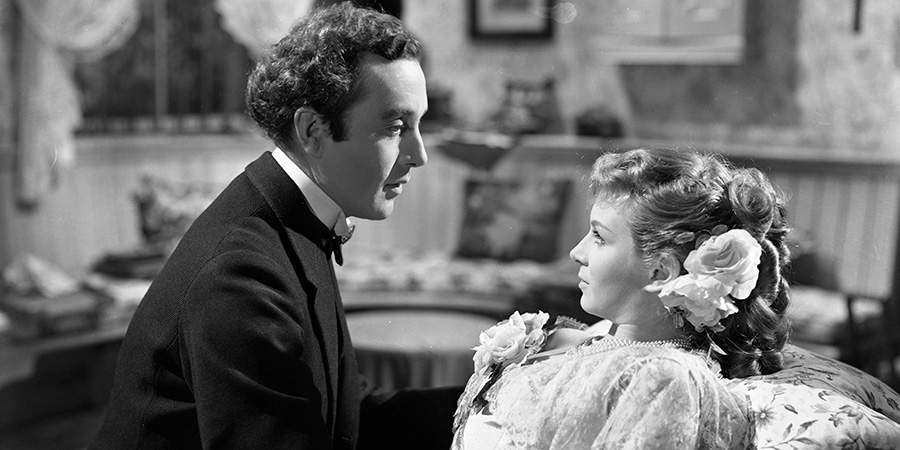
A downside of Guinness's success, however, is that it has somewhat overshadowed the excellent performance given by Dennis Price in what is, after all, the central role. Sadly, Price who, in common with director Robert Hamer often struggled with alcoholism, and, like both Hamer and Guinness, struggled with the burden of being secretly homosexual or bisexual at a time when homosexual acts were still illegal, went on to live a rather troubled life.
Seventy-five years on, however, the reputation of Kind Hearts And Coronets remains at a deserved high. Though a stage musical - entitled A Gentleman's Guide To Love And Murder - based on the same source material appeared in 2012, and a number of BBC radio adaptations have been produced, the film has occasionally been imitated (let's forget Splitting Heirs, shall we?) - but never remade.
Unbeatable, unrepeatable; it remains a defining moment in the life of the celebrated production house Ealing Studios and a crowning moment in the history of British comedy.
Help us publish more great content by becoming a BCG Supporter. You'll be backing our mission to champion, celebrate and promote British comedy in all its forms: past, present and future.
We understand times are tough, but if you believe in the power of laughter we'd be honoured to have you join us. Advertising doesn't cover our costs, so every single donation matters and is put to good use. Thank you.
Love comedy? Find out moreKind Hearts & Coronets

Hailing from the golden age of Ealing comedies, Kind Hearts & Coronets stars Dennis Price as the debonair yet impoverished Louis Mazzini, the would-be Duke of Chalfont whose mother was disinherited by her noble family for marrying beneath her.
When her dying wish to be buried in the family crypt is refused, Louis vows to avenge his mother and work his way up the family tree by engaging in the gentle art of murder. One by one he attempts to kill off the eight successors that stand in the way of his becoming Duke - all played by Alec Guinness in an unforgettable tour-de-force performance.
Directed by Robert Hamer, Kind Hearts & Coronets also stars Joan Greenwood as the husky-voiced siren Sibella and Valerie Hobson as the refined and virtuous Edith D'Ascoyne, both of whom threaten to distract Louis from his killing quest. A wonderfully entertaining combination of biting class satire, hilarious farce and pitch-black comedy, this story of a suave and elegant serial murderer is as sharp and funny today as ever.
First released: Monday 22nd April 2024
- Distributor: STUDIOCANAL
- Discs: 2
- Minutes: 106
- Catalogue: OPTU4567
![]() Buy and sell old and new items
Buy and sell old and new items
Search for this product on eBay
BCG may earn commission on sales generated through the links above.

